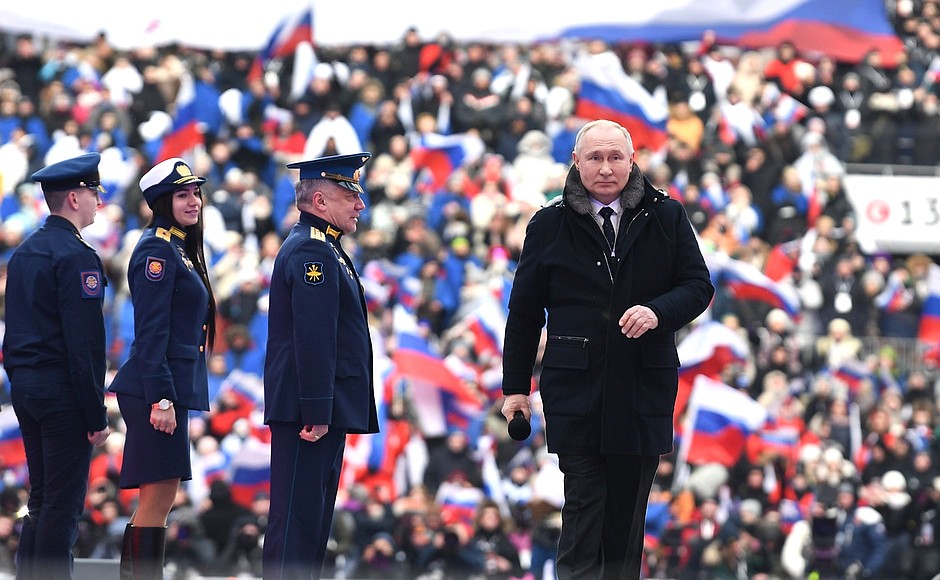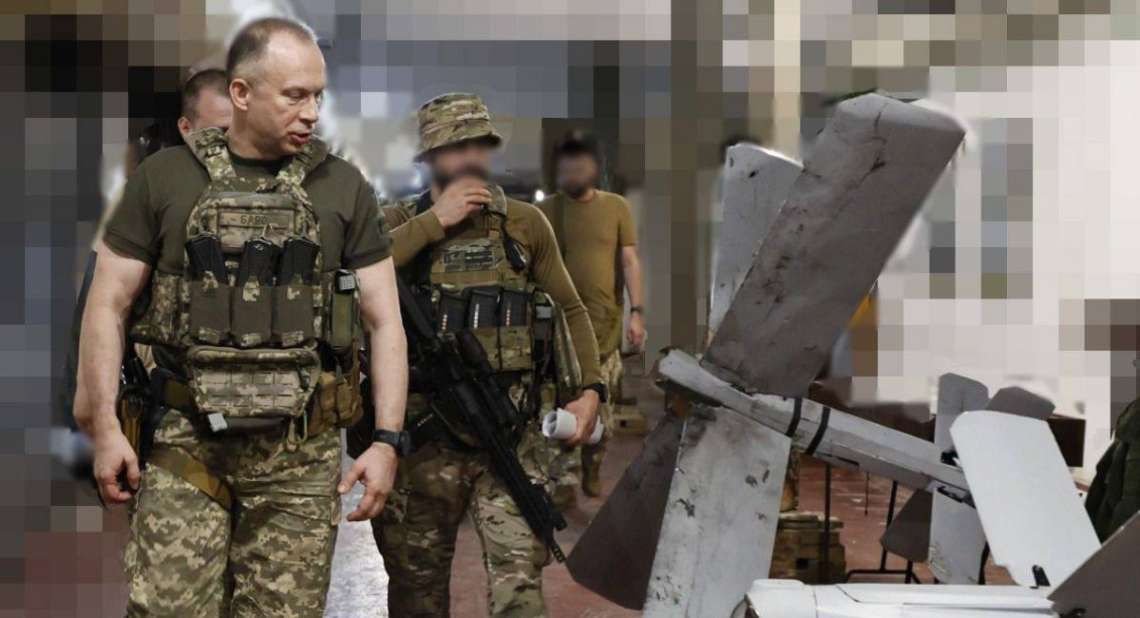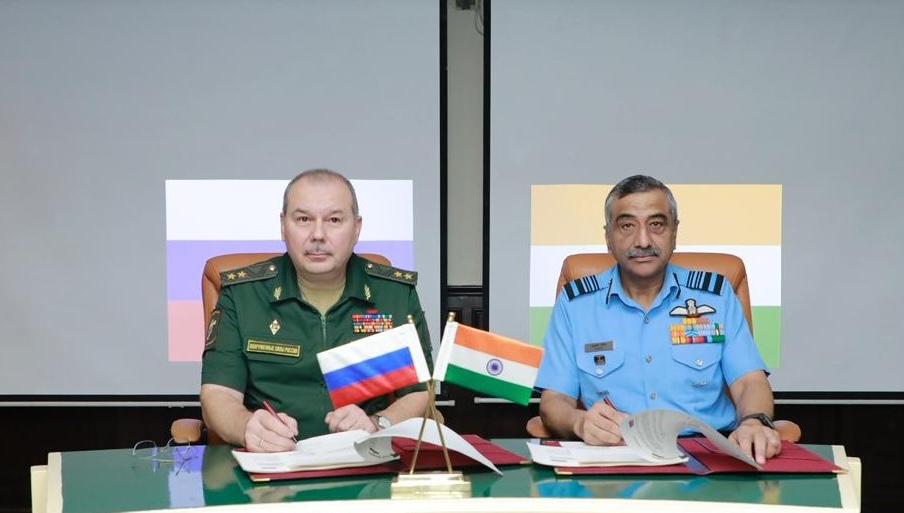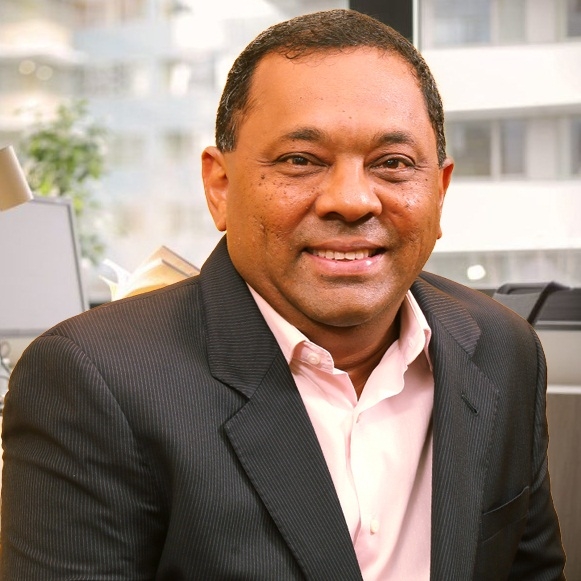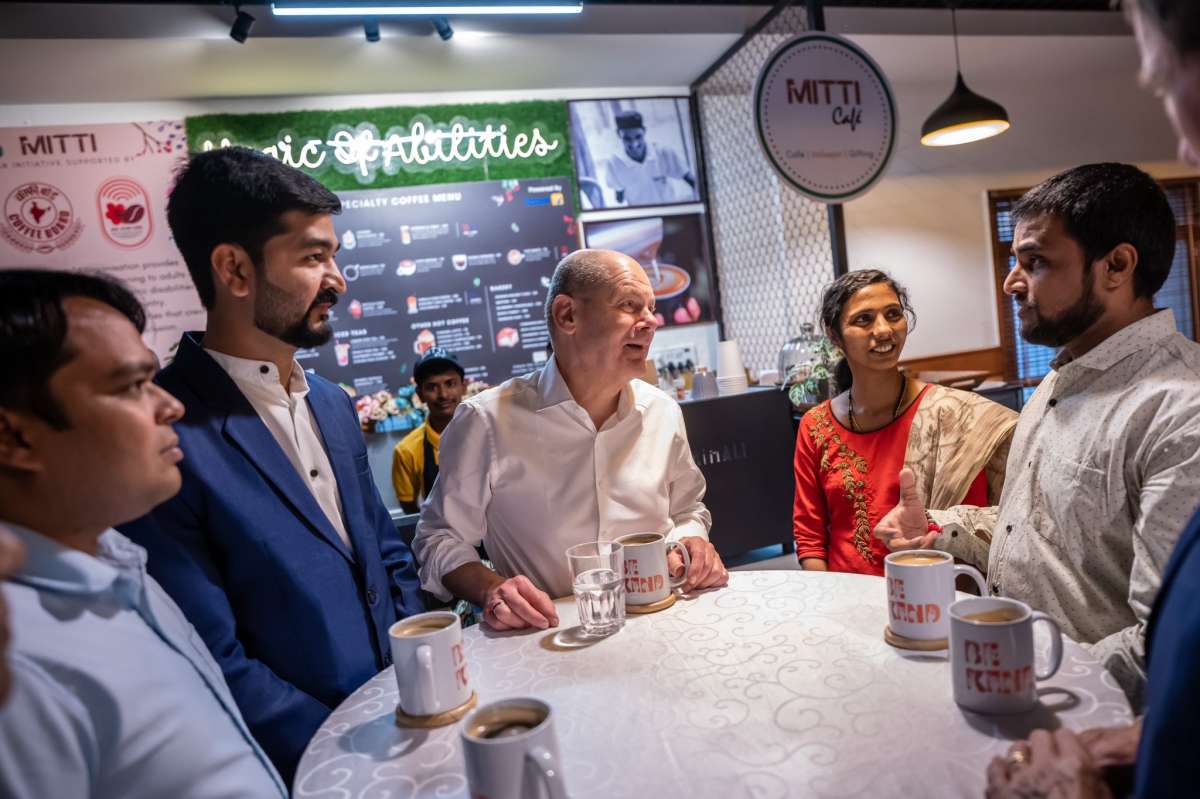It is noteworthy that on February 24 – the day of the start of the military operation in Ukraine, President Putin personally did not comment on it – the Russians did not hear his appeal to the nation, writes Sergei Strokan
One-year anniversary of Russian military operation in Ukraine, started Feb. 24, 2022, has a long global echo with an avalanche of statements on the interim results of the ongoing conflict — the largest and the most dangerous after World War II.
The sides of the confrontation — Russia, Ukraine and the Western powers behind it, in their forecasts are modelling the future scenarios while showing guts, and verve and zest to fight to victory.
While Moscow believes in a gloomy future for Ukraine, predicting its collapse, President Biden and European leaders assure that political, economic, financial, humanitarian and military assistance to Kiev will continue as long as necessary.
Against this background, another talk of the day — Chinese peace plan, consisting of 12 points, published on the anniversary of the Russian operation in Ukraine, was already rejected by the West.
It is noteworthy that on February 24 – the day of the start of the military operation in Ukraine, President Putin personally did not comment on it – the Russians did not hear his appeal to the nation.
Three days before that the military operation in Ukraine was the key topic of Vladimir Putin’s address to the Federal Assembly, which was delivered on February 21. Putin’s main idea was that there was no way to avoid the conflict — Russia had no choice but to start acting.
“The threat was growing, and every day. The incoming information left no doubt that by February 2022 everything was ready for another bloody punitive action of Ukraine in the Donbas region,” he said, addressing parliamentarians and representatives of the Russian political and business elite.
The next day, speaking at a rally-concert at the Moscow Luzhniki sports complex, Vladimir Putin elaborated on that. He thanked Russian servicemen, who, according to him, are fighting heroically and whom «the whole country supports today.
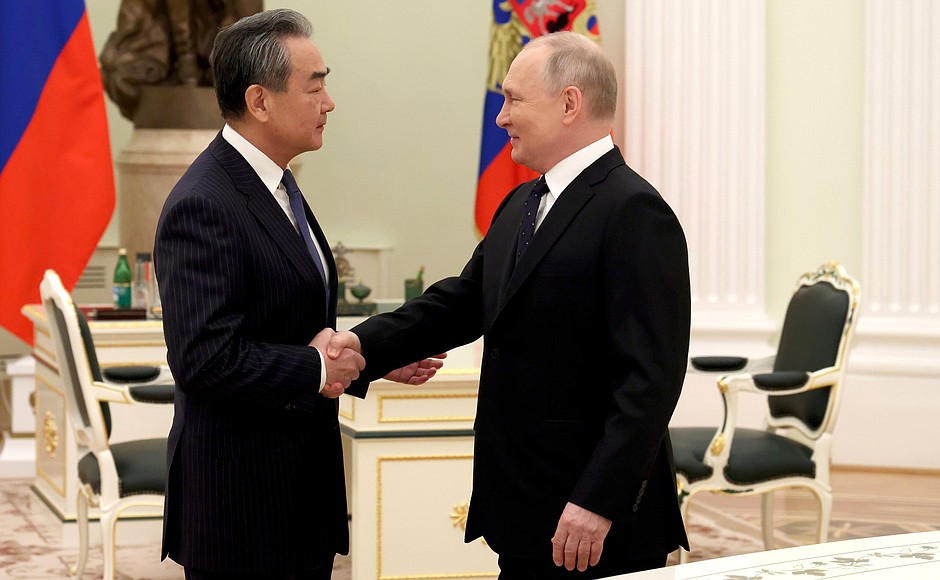
Next day, on February 23, the President was laying a wreath at the Grave of the Unknown Soldier in Moscow.
President Putin’s messages were followed on February 24 by Russia’s Deputy Secretary of the Security Council, ex-President Dmitry Medvedev. In his Telegram channel, he expressed confidence that victory would be achieved.
“We will return our territories and reliably protect our people who suffered during the years of genocide and shelling. After that, difficult and nervous negotiations will begin — de facto with representatives of the West who are not interested in ending the conflict and are trying to weaken Russia as much as possible,” Dmitry Medvedev wrote.
After the adoption of the would-be agreement, according to Dmitry Medvedev, an equally difficult stage will begin.
“We are prepared for exhausting months and years of confrontation, hysteria and rudeness on the part of those who will manage a fragment of what remains of Ukraine. That is why it is so important to achieve all the goals of a special military operation. We have to push the borders as far as possible, even if it will be the borders of Poland, to eliminate threat. We have to wipe out neo-Nazism to the ground,” Dmitry Medvedev wrote.
However, the West is showing no less determination. The leaders of the European Union countries made their own special statement on the first anniversary of the military operation in Ukraine.
“The European Union will continue to provide Ukraine with political, economic, financial, humanitarian and military assistance. We will also support the restoration of Ukraine, for which we will strive to use frozen and blocked Russian assets in accordance with European and international law,” the leaders of the European Union said.
“Together with our international partners, we will do everything so that Ukraine wins, international norms are respected, peace and territorial integrity of Ukraine in its nationally recognized borders are restored, so that Ukraine is rebuilt and justice is done. We will not rest until that day,” the European Union promised.
Sweden, which chairs the Council of the European Union, announced: the European Union and its members allocated about €67 billion over the year to support Ukraine, €37.8 billion went to economic aid, €17 billion to help refugees, €12 billion to military support.
Against this background, on February 24, the Pentagon announced the provision of a new $2 billion package of military assistance to Ukraine. It includes ammunition for HIMARS multiple launch rocket systems and 155 mm artillery shells.
Pentagon chief Lloyd Austin told CNN how Washington is helping Kiev: “We train and equip several mechanized brigades of Ukraine. We need to add artillery to this.” Lloyd Austin said hinting that this “will allow the Ukrainians to change the dynamics on the battlefield by launching their offensive may be in Spring.
The US military department reported: the United States allocated more than $32 billion in military aid to Kiev during the year of Russia’s war in Ukraine.
There were also upbeat statements by the leaders of other Western countries. Polish Prime Minister Mateusz Morawiecki visited Kiev, where he announced: “Poland, as the country that was the first to build a coalition to transfer tanks to Ukraine, wants to symbolically transfer the first four Polish Leopard 2A4.” Kiev expects to receive from 12 states up to 140 tanks as the first batch..
Assistance to Kiev is traditionally accompanied by increased pressure on Moscow. On February 24, President Biden signed a decree raising tariffs on some Russian goods imported into the United States, adding to previous attempts to deprive Russia of privileges in international trade. The new measures will lead to an increase in tariffs on more than 100 Russian metals, minerals and chemical products worth approximately $2.8 billion for Russia.
However, the imposed at 200% duties on aluminum should not have a significant impact on Russia. The American market is not a key one for Russia’s company Rusal, the largest metal producer outside of China. The potential loss of the American market could cost Rusal 3% of net profit ($3.2 billion in 2021).
In addition, the US Treasury Department has imposed new sanctions on 22 individuals and 83 legal entities, including more than 10 financial institutions. The US State Department has also imposed visa restrictions on over 1.2 thousand Russian military personnel. Ministers, officials, and governors also fell under the new sanctions. Meanwhile, the European Union continues to coordinate the tenth package of sanctions, which had previously encountered difficulties.
Against this background, China tried to take the position of mediator between these two poles — the Russian and the Western —, unveiling its peace plan for Ukraine, which consists of 12 points.
These points look like this:
to respect the sovereignty of all countries, as required by the UN Charter;
to abandon the “Cold War mentality”, preventing the “formation of camp confrontations”;
to cease fire, since “there are no winners in wars”;
to start peace talks, which remain the only real way out of the crisis;
to resolve the humanitarian crisis, including by creating corridors for civilians and increasing humanitarian assistance;
to protect civilians and prisoners of war, in particular to create “more favorable conditions” for exchanges of the latter;
to maintain the safety of nuclear power plants;
to reduce strategic risks by refraining from the use of nuclear, biological and chemical weapons “by any country under any circumstances”;
to guarantee the implementation of the agreement on the transportation of grain across the Black Sea signed by Russia, Ukraine, Turkey and the UN in 2022;
to abandon unilateral sanctions, since their application “not only does not solve problems, but creates new ones”;
to ensure the stability of production and supply chains, thereby protecting the world economy;
to promote post-war reconstruction in the conflict zone.
“The sterility of the Chinese peace plan can be laughable or be met with irony, but given the weight of China, everyone will at least appeal to it. This is exactly what Beijing needs — the effect of presence without any actions or, God forbid, obligations,” Fyodor Lukyanov, editor-in—chief of Russia in Global Politics magazine, chairman of the Presidium of the Russian Council for Foreign and Defense Policy, wrote on the Telegram channel.
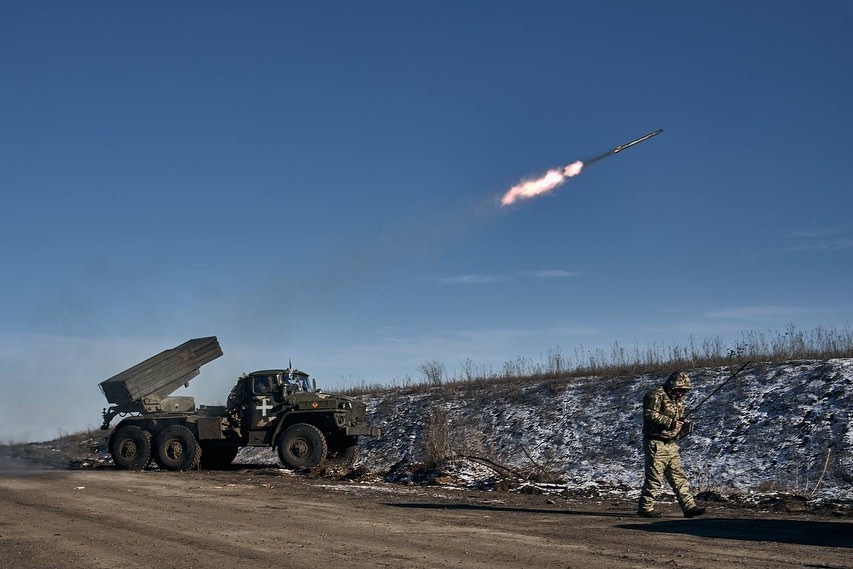
“The Chinese peace plan for Ukraine resembles a diplomatic non-alcoholic beer or champagne. The drink has a bright beautiful color in the glass, with mushrooming bubbles coming out of it, but this drink has no taste, and gives you no kick,” Vladimir Sotnikov, a leading researcher at the Institute of Oriental Studies of the Russian Academy of Sciences, told India Narrative.
The publication of the Chinese plan was preceded by a visit to Moscow by the highest-ranking Chinese diplomat Wang Yi, who met with Security Council Secretary Nikolai Patrushev, Russian Foreign Minister Sergei Lavrov, and President Vladimir Putin.
The Russian Foreign Ministry supported the Chinese initiative.
However, it was immediately followed by negative comments of Western leaders which can be summarized in one thesis: China cannot be an impartial mediator in the conflict over Ukraine.
Therefore, Chinese peace plan for Ukraine is a no-starter.
(Sergei Strokan is a veteran journalist, writer and columnist of the Kommersant publishing house based in Moscow. The views expressed are personal and exclusive to India Narrative)
ALSO READ-Macron to visit China, seek Xi’s help to end Ukraine war


